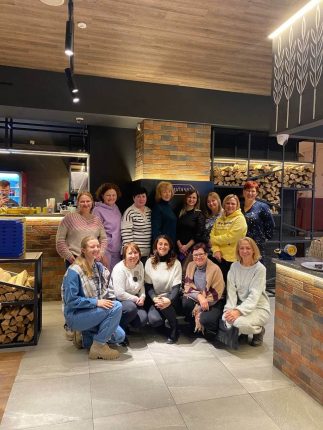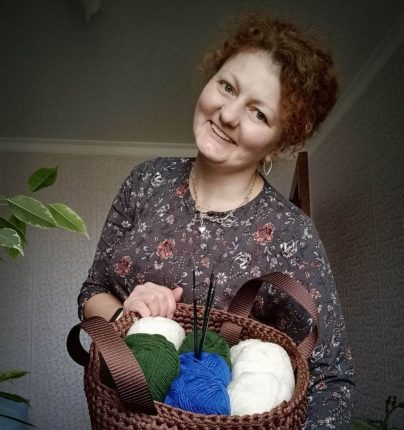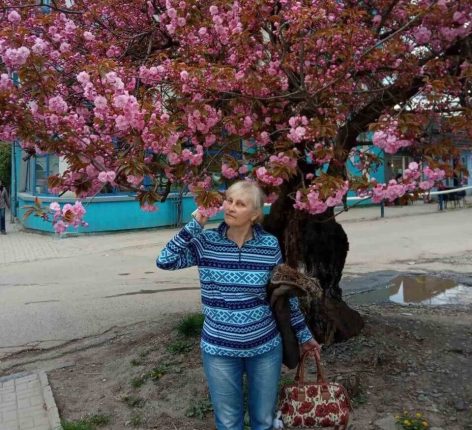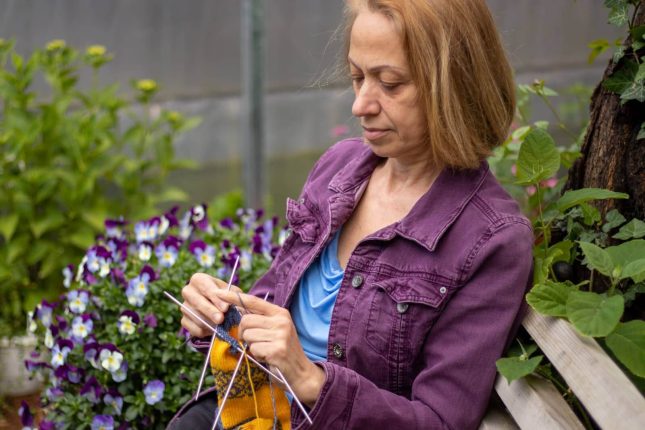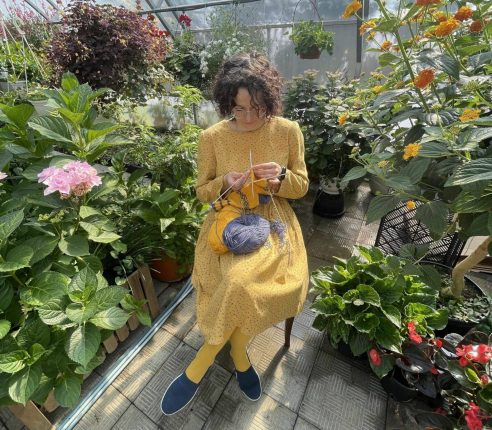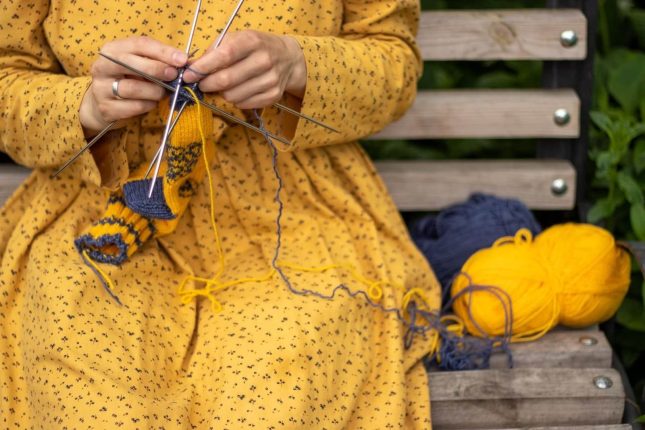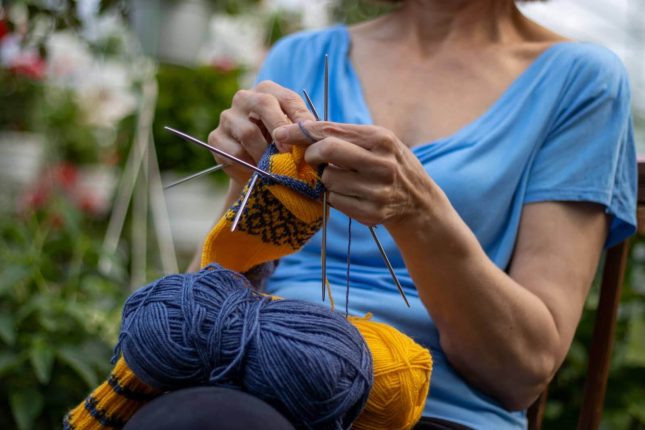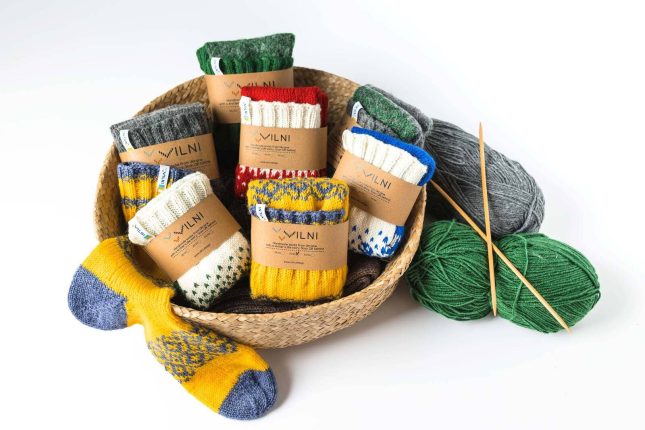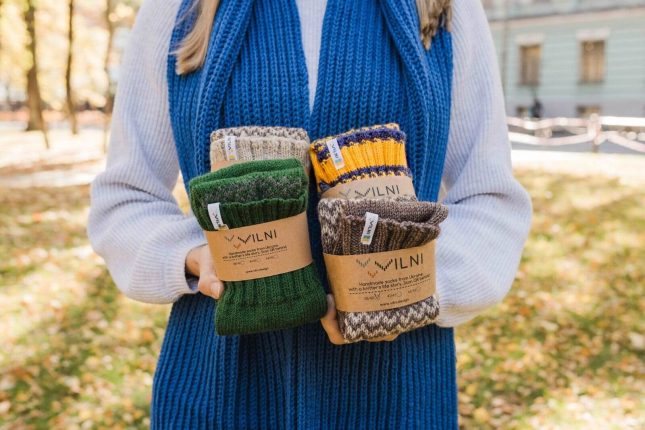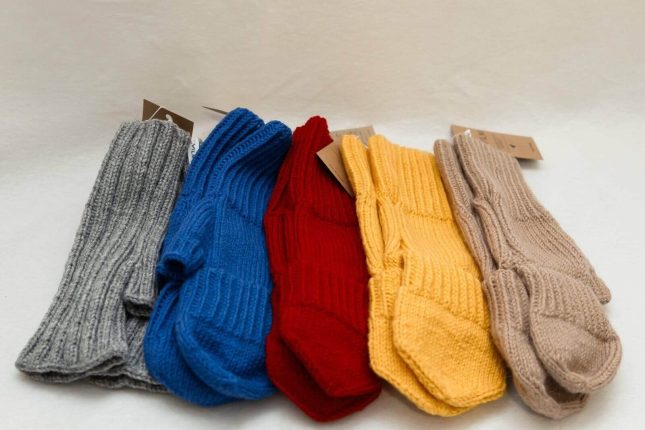
Socks for Peace: how the Vilni project is supporting internally displaced women in Ukraine
04/04/2024
On 24 February 2022, the lives of all Ukrainians changed. Due to Russia’s full-scale invasion, many women were forced to leave their homes and move to safer places.
Most of them lost their jobs and livelihoods. Anastasiia was one of these women. At that time, she had a six-month-old daughter and was planning to go abroad. However, at the last moment, she decided to stay in Ukraine.
Together with a friend from Estonia, she came up with the idea to establish the Vilni social entrepreneurship project.
“We lost our jobs. During the first weeks, we volunteered. Then I messaged Andy Paterson, who is now the co-founder of our project, and asked him for work, because the rent prices were exorbitant. Andy proposed to establish a project with the working title “Socks for Peace”. And I developed a business format for it,” says Anastasiia Bytko, the co-founder of the Vilni social entrepreneurship project.
The key objective of the Vilni project is to support internally displaced women
The Vilni initiative is based on the “Socks for Peace” project and focuses on creating jobs for internally displaced women. Anastasiia’s mother developed the first model of socks.
Then the authors of the idea started to look for craftswomen who would produce socks and receive money for this. And there were a lot of women willing to join the project.
“In Uzhhorod, my mother and I just went to a shelter, where I stuck an announcement on a wall. I also published a post on Facebook, stating that I was looking for someone to help me develop a model. And literally in a week, I received replies from about a hundred craftswomen,” Anastasiia recalls.
The project initiators selected ten craftswomen, who were living closest and could knit by hand, from about a hundred candidates. They concluded contracts with the women and provided them with everything they needed for work, as well as with schemes for producing three required models.
The production has been expanding since then. Moreover, handmade products were in great demand abroad.
“We developed an English-language website and started to actively look for exhibitions abroad and took part in them. We sold our products in the USA, Denmark, the Czech Republic, and Switzerland – in total, in about seven countries. However, Estonia was the main sales market,” says the co-founder of the Vilni project.
The number of craftswomen interested in the initiative was constantly growing. To join the project, each craftswoman had to complete a test assignment. Olena from Pokrovsk in Donetsk region also dreamed of joining the Vilni initiative. At the beginning of Russia’s full-scale invasion, Olena and her sons had moved to Bulgaria.
Knitting has always been her hobby. Olena saw a post on a call for craftswomen on Facebook. However, living in Bulgaria prevented her from joining the project.
“The project operated only in the territory of Ukraine. So, I couldn’t join the project, because I was residing in Bulgaria at that time. When we returned to Ukraine, I immediately sent an e-mail to the project coordinators and informed them that I was back in Ukraine and wanted to join the project,” says Olena, now a craftswoman of the Vilni project.
The Vilni project has inspired Olena to create her own products
So Olena became a craftswoman of the project. She has been working for Vilni since. Olena says that the project not only provided her with financial support, but also inspired her to start her own business, which she couldn’t dare to think of before.
“The Vilni project helped me to believe in myself, do challenging things, and generate the ideas that I wouldn’t have taken up before. Now, when we have a break between cycles, I’m developing my own schemes, because I have some ideas, for example, an idea to produce hand-knitted vyshyvankas,” Olena notes.
The project has also inspired Iryna from Nikopol
The project has also provided significant support to Iryna from Nikopol. She stayed in Nikopol and even went to work there until the summer of 2023. However, Russia’s intensified attacks made her move to a safer place – to Uzhhorod. And she started to knit socks for Vilni there.
“I was lucky to see this post on Facebook. They hired me immediately after an interview and our e-mail communication on my abilities. With this project, I could earn a living, pay rent, and survive,” Iryna underlines.
The project supported more than 60 Ukrainian craftswomen over a year and a half
Over a year and a half, the project supported more than 60 internally displaced craftswomen. More than 30 of them provide their services on a regular basis. In addition to financial support, they were also provided with psychological support.
“Everyone has been under stress. Some women adapted to a new place of residence, some women mastered a new profession – and I supported them in this,” says Natalia Padun, a psychologist on the Vilni project.
“We have organised a group psychotherapy project, in which women could get some mental relaxation and share their emotions and concerns. And this helped them,” the psychologist adds.
The project was launched with the support of the EU
Anastasiia Bytko, the co-founder of the Vilni project, advises everyone not to be afraid to take risks and, despite obstacles, not to give up and move toward their goals. She says that she has never held knitting needles in her hands before, nor, until now, had she ever been engaged in entrepreneurial activities.
However, Anastasiia managed not only to find craftswomen, but also to agree on the supply of materials and the sale of products abroad.
And thanks to her perseverance and financial support from the European Union, she was able to launch the fourth production cycle and create jobs for dozens of women.
“At the beginning of the full-scale war, they launched a business accelerator. We learned everything: business processes, finance, accounting…and many other things. And at the end of the programme, we pitched our project and received funding,” says Anastasiia.
“We raised €10,000, paid salaries for several cycles, and expanded our line of products. We added New-Year socks, as well as scarves and hats. We also used these funds to procure yarn and some materials,” Anastasiia adds.
The project is expected to become a platform for selling original handmade products created by craftswomen
Now, the Vilni project is changing its format. The organisers intend to slightly reduce the project’s own production. Vilni is expected to become a platform for selling original handmade products created by craftswomen who were supported by the project in difficult times and inspired to start their own business.
The Vilni project is one of the beneficiaries of the Ukrainian Social Venture Fund. In partnership with the EU-funded Collaborate for Impact – Development of Social Entrepreneurship and Social Investments project, the Fund supports social enterprises.
Author: Sonia Voloshyn
Article published in Ukrainian by 24tv.ua
Stories
-
Katarina Mathernova: If Ukraine had a human face and a human spirit, it would be 10-year-old Roman Oleksiv
-
A regional mission to drive social entrepreneurship: the story of Ksenia Kosukha
-
EU restores safe water supply for 100,000 Ukrainians affected by war
-
Promoting IT during the war: Lviv IT cluster and how EU4Digital helps
-
Frontline digitalisation: Kharkiv IT Cluster collaborations
-
How EU4Youth is driving opportunity and success among young Ukrainians





